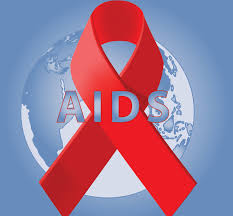Source: kabar24.bisnis.com
Bisnis.com, GUNUNGKIDUL – The Gunungkidul District Health Office recorded that as of November 2019 there were 64 new cases of people infected with HIV / AIDS in Gunungkidul. Compared to 2018, the number of cases in 2019 has increased.
“For December 2019 there were several people affected, but not included in the accumulation. Overall, the number of cases increased compared to 2018,” said the head of the Gunungkidul Health Office, Dewi Irawaty, when met by Jogja Daily , Tuesday (1/7/2020).
If accumulated from 2006 to November 2019, there are 663 cases that are still being monitored and given care by the health team. The number is divided from the positive people infected with the HIV virus as many as 399 people, while positively infected by AIDS as many as 264 people in which there are 13 affected children.
Dewi said that HIV / AIDS can be contagious, but its transmission is not as easy as other communicable diseases. According to him, transmission of HIV / AIDS is only through four fluids namely blood transfusion fluid, vaginal fluid, sperm fluid and breast milk. Outside of this method, germs of HIV / AIDS cannot live and develop. “Out of these four modes of transmission, germs will die,” he said.
According to Dewi, the most important thing for the community is not to discriminate against sufferers. Until 2018, there was still this incident in Gunungkidul. He gave an example that children with HIV were not accepted at one school. According to Dewi, that has violated human rights.
Deputy Chairperson of Commission D of Gunungkidul DPRD, Ari Siswanto, said the need for massive socialization to the public in order to provide a clearer understanding related to HIV / AIDS, ranging from the way it is transmitted to handling it.
Ari explained the most important thing was that the community needed to understand that there were victims and perpetrators of HIV / AIDS. Victims who do not know the cause of transmission need to be protected, not shunned. “Victims such as children must be protected because there is no mistake whatsoever, because they do not know anything, maybe because of the parents, but sometimes people consider the treatment the same as the perpetrators,” he said.
Ari said that the perpetrators also should not be isolated. They must continue to gain understanding so that transmission does not continue. One of them is with spiritual reinforcement.
